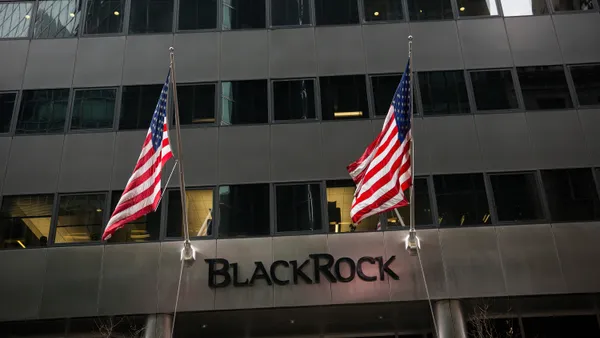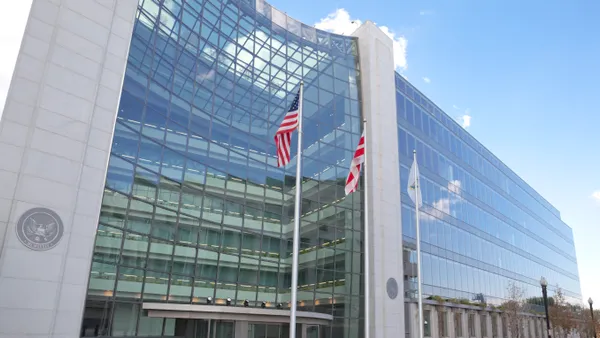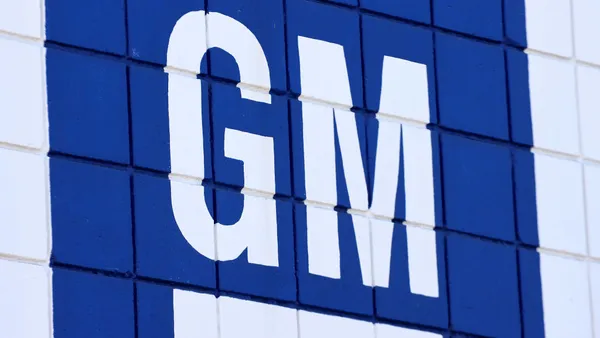Dive Brief:
- Global insurance giant Marsh will explore a new market and insure purchased carbon credits to help companies protect themselves against potential fraudulent credits as the voluntary carbon market expands.
- Marsh, a subsidiary of the world’s largest insurance broker by revenue, unveiled the product Monday as a partnership with carbon credit insurer We2Sure. Marsh’s product will also give clients access to We2Sure’s carbon credit certification.
- The product will help de-risk carbon credit investments for businesses, as well as support the integrity and growth of the wider carbon market, according to Rupert Poland, Marsh’s digital asset leader for the United Kingdom.
Dive Insight:
Marsh’s carbon credit insurance facility will focus on safeguarding companies in the United States, UK and European Union against potentially fraudulent carbon credit certificates. The company, a Marsh McLennan subsidiary, said the voluntary carbon market is “increasingly being targeted by fraudsters” who are selling carbon credit certificates for projects that do not exist.
The voluntary carbon market has been a focus for participants, companies and governments who are looking to shore up the integrity of the market and make sure that carbon credit purchases correspond to measurable carbon dioxide emissions pulled from the atmosphere.
“Businesses are increasingly using carbon credits as a core element of their strategy to meet net zero targets, and this leaves them exposed to fraudsters seeking to take advantage of this growing market,” Poland said in the release. “The lack of standardization and transparency in the market makes it difficult for businesses to assess the legitimacy of the carbon credits they are buying.”
Marsh’s product will insure against counterfeit certificates, theft and certificates for non-existent projects. The insurance facility will be backed by global insurers Sompo, Brit and Talbot.
We2Sure’s carbon certificate validation technology – the Carbon Actuator – is able to recognize any duplicate or counterfeit carbon credit certificates. The company also uses satellites and artificial intelligence to monitor and assess projects in real-time. The real-time monitoring allows We2Sure to identify any projects that don’t meet predetermined standards or reflect the credits issued.
“Our data-backed verification process addresses the critical issue of authenticity in carbon credit certificates, substantially reducing reputational risks for buyers,” Simon Wigzell, We2Sure’s head of business development and underwriting said. “This transformative solution establishes a robust integrity standard, effectively converting intangible carbon credits into tangible assets, thereby enabling corporations to invest with greater confidence.”
While Marsh looks to safeguard against potential fraudulent credits, the Biden administration has looked to shore up the voluntary carbon market. Earlier this year, the White House released a set of principles for responsibly engaging with the voluntary marketplace, and the Commodity Futures Trading Commission followed up with its final guidance for listing carbon credits on voluntary markets last month.
Even as the credibility of the markets increases, how effective carbon credits are is still an open question, based on how they are utilized. A coalition of 80 climate groups said in July that if companies use carbon credits to offset their own emissions for the purposes of climate goals, it is “likely to slow down global emissions reductions.” The Science Based Targets initiative followed suit later that month, releasing a study that found “clear risks” to using carbon credits to offset emissions, rather than focusing on efforts to reduce their emissions.












